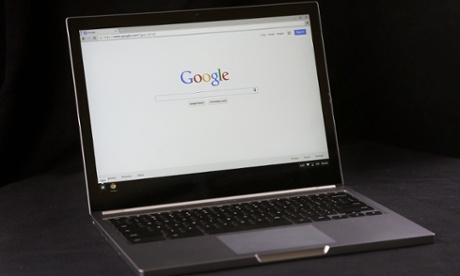
Google has launched a new premium Chromebook – the Pixel 2. It is faster than its predecessor and has a high resolution screen but it raises the question: does anyone really want to pay £800 for a glorified web browser.
Google’s Chromebooks are designed to be a fast, cheap, portal to the internet costing under £250 and providing a browsing experience far better than similarly priced PCs. They are essentially a computer that’s just a web browser, capable of doing anything you can through the browser but not much more.
Google’s original Chromebook Pixel was launched in 2013 and was an oddity. It had a high resolution display rivalling Apple’s “retina” displays and cost £1,000, but was only as capable as any other Chromebook costing a quarter of the price.
The new Pixel is cheaper, faster and comes with the new USB type-C port, but essentially offers the same conundrum: who should you buy a £800 Chromebook?
Reviews have started pouring in from the US to attempt to answer that very question. Here’s what they said.
Chromebook Pixel review (2015): less expensive, still impractical
Engadget’s Dana Wollman found the design fantastic, the build great and the screen better than almost any other.
In addition to being sharp, the Pixel’s display boasts rich colours and wide viewing angles, even despite the touchscreen’s glossy finish. The visibility is so good, in fact, that when my seatmate on a recent flight asked me to open the window shade, I could make out the contents of the screen, even with sunlight streaming in next to me.
Chromebook Pixel (2015) review
The Pixel 2 adopts the reversible USB type-C for charging and connecting screens, despite having regular USB ports too. According to Dieter Bohn on the Verge users won’t have to charge it very often, though.
About the battery life: it’s out-of-this-world good. The last Pixel was a disappointment in that regard, and most other Chromebooks are serviceable, but not stupendous. Google rates this Pixel as good for 12 hours, and in our own battery test, it clocked in at 14.
Google Chromebook Pixel (2015) review
David Pierce writing for Wired explained that the Pixel 2 makes compromises on software not on hardware, but that is the point of Google’s Chrome OS.
The limitations are the opposite of the new MacBook: there’s plenty of processing power inside the Pixel, but there are some software limitations. Forget video editing or anything resembling heavy-duty gaming, for instance; there just aren’t apps for those things on Chrome OS. For the basic tasks and mundanities we all slog through each day, though, Chrome OS is now more than enough. The biggest downside at this point is the local storage. Google really, really wants you to use Drive, so it gives you 1TB of online storage but only 32GB of hard drive space. You’ll fill that with photos and torrented copies of The Hobbit movies way too quickly.
Google’s Chromebook Pixel 2 is ready to be your work laptop
Mashable’s Pete Pachal said that the Pixel 2 is the best Chrome browser experience money can buy, but £800 is a lot of money and that doesn’t even buy the most powerful version.
The standard Pixel 2 has lots of muscle, but there’s an even stronger kid on the block. If you really want to be the biggest Chromebook on the block, Google actually makes a Chromebook Pixel 2 LS version. Google says the “LS” stands for “ludicrous speed,” and that version packs an Intel Core i7 processor, 16GB of RAM and 64GB of storage. Why would you ever need that kind of power on a Chromebook, which runs and stores most everything in the cloud? I’m sure a developer somewhere will figure it out.
New Chromebook Pixel is lovely hardware with limited appeal
Andrew Cunningham from Ars Technica comes to the conclusion that despite being a very nice machine it’s niche is small.
The new Chromebook Pixel is an improvement over its predecessor in every important way—it’s the best kind of upgrade, the kind that keeps what worked about the previous model and upgrades everything else.
It’s still the same kind of computer the first Pixel was, though. Its quality is excellent, but its operating system combined with its price makes it a nonsensical purchase for most people.
The big question is still “who is this for” and the answer is still “die-hard Chrome developers, people who get them for free at Google I/O or whatever, and tinkerers who like the design and buy Chromebooks to put Linux on them.”
In the end the new Chromebook Pixel is a weird juxtaposition – a premium machine running a system designed to be cheap but do one thing well. It stands as Google’s idea of what the next step in cloud-powered computing should be and Chrome OS developers are going to love it. The rest of us should probably just stick with the £200 machines or buy a PC or Mac for £800.







